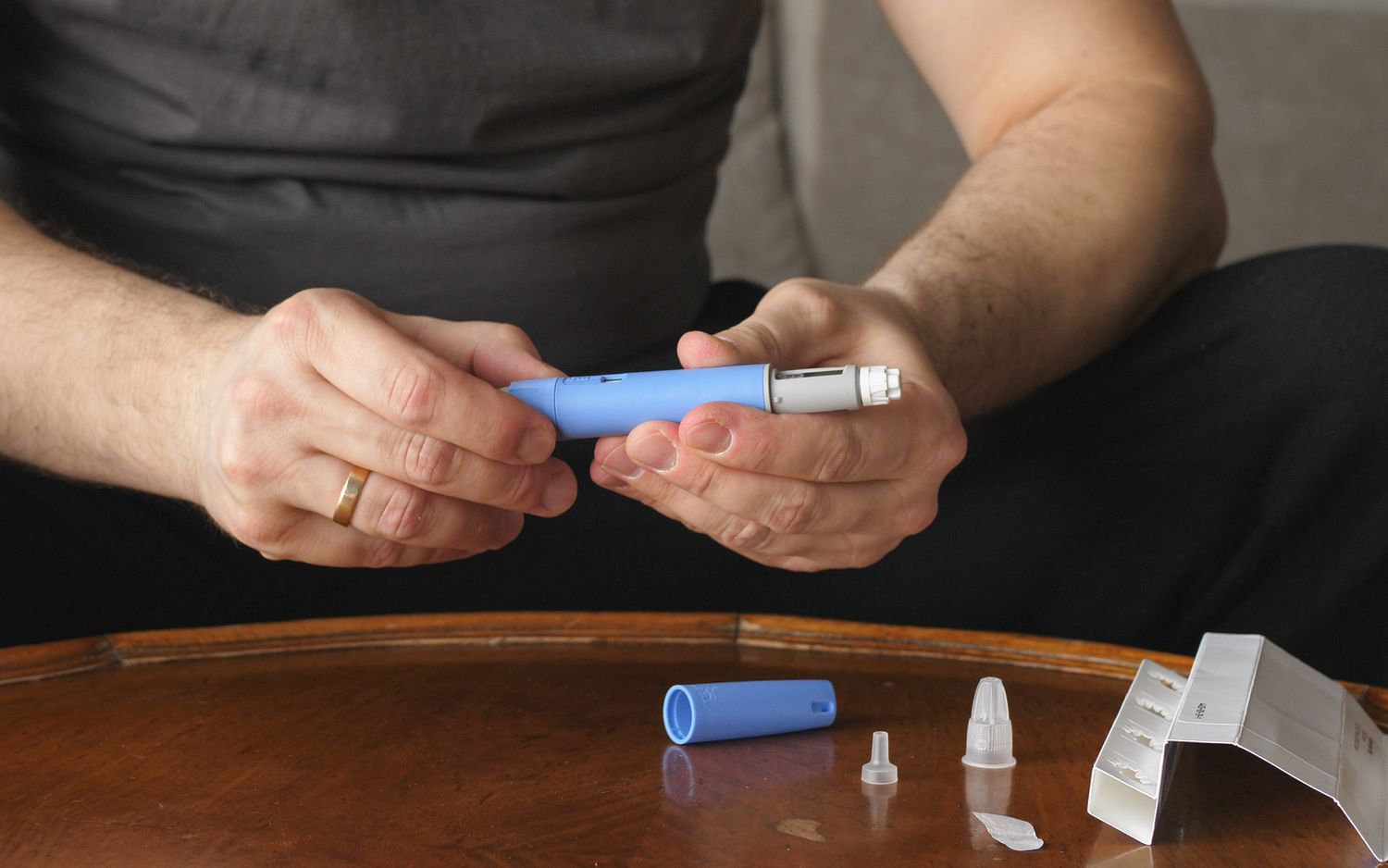Why Doctors Are Concerned About Patients Discontinuing Weight Management Drugs Prematurely

GLP-1 drugs like Ozempic and Wegovy are soaring in popularity for their weight management benefits, but a recent report found that many people don’t stay on the treatment long enough to achieve results.
The study, conducted by Blue Health Intelligence, showed that more than 30% of people stopped taking prescribed GLP-1 drugs—formally known as glucagon-like peptide-1 receptor agonists—within four weeks of starting them.
While Wegovy has been approved by the Food and Drug Administration to treat obesity, Ozempic is often prescribed off-label for that purpose. The drugs are intended to be taken for a minimum of 12 weeks and are prescribed at a low dose that increases over time. People can usually take them for years.
Taking GLP-1s for only a month will have only a minimal effect—it can take up to five or six months to reach the full dose, said Scott Isaacs, MD, president-elect of the American Association of Clinical Endocrinology. “Many people do not lose weight on the initial starting doses and need to titrate up to higher doses in order to have a weight loss effect,” he told Health.
Not only that, stopping too early can also be risky for health, experts said.
Here’s what you need to know about the research, as well as what to consider before cutting your treatment short.
For the study, researchers used the pharmacy and medical claims data of almost 170,000 people with Blue Cross Blue Shield insurance coverage who received prescriptions for GLP-1s between 2014 and 2023. The average age of patients was 45.
They found that most people dropped out of treatment prior to 12 weeks.
Those between the ages of 18 and 34 were more likely to stop treatment, as were people with health inequities or those living in underserved health regions. Gender seemed not to affect who dropped out and who continued with their medication.
Factors that influenced whether a person stayed on their GLP-1 included whether the prescribing doctor was an endocrinologist, obesity specialist, or otherwise had expertise in weight management and obesity, researchers found. People who saw their healthcare providers more frequently after receiving the GLP-1 prescription were also more likely to continue their treatment.
The researchers speculated that some people may stop taking the medication due to side effects. The drugs can cause nausea, vomiting, and diarrhea, as well as other serious but less common adverse effects including pancreatitis, gallbladder disease, and kidney issues.
“Many prescriptions are initiated to the extraordinary patient demand, but many of the prescribers are not trained in the full set of wraparound care strategies required to manage a patient on a GLP-1,” Rekha B. Kumar, MD, an associate professor of medicine at Weill Cornell Medical College and Chief Medical Officer at Found, told Health.
Those strategies include knowing how to troubleshoot side effects rather than just stopping the medication, de-escalating treatment when appropriate, and providing behavioral support, she said.
In addition to side effects, other factors like drug shortages, costs, and limited availability also may contribute to high drop-out rates, Kumar noted.
“Long-term accessibility is a concern partially due to cost, which is why there are non-evidenced based tactics being proposed, such as stopping medicine followed by severe diets,” she said.
Issacs said the danger of temporarily taking GLP-1 medications is that people who stay on it for at least long enough to lose weight will lose that weight rapidly, which means they will likely also lose muscle. Though people tend to regain most of the weight they lose once they go off the drugs, they won’t necessarily gain that muscle back.
“Therefore, there is an alteration in body composition with a higher body fat percentage, which then translates to lower metabolism,” he said. “Weight cycling—losing weight and then regaining it—ultimately results in more difficulty losing weight as the metabolic rate is much lower.”
That’s why GLP-1s are FDA-approved for continuous use to treat obesity, Isaacs stressed.
Isaacs said the key to staying on GLP-1 medication is managing side effects.
“It is common to experience gastrointestinal side effects when initiating these medications,” he said. “Side effects usually subside after four weeks or less but may return for about four weeks each time the dose is increased.”
Because the medications work by slowing stomach emptying, they can make you feel full but also bloated. High-fat foods and eating too much can worsen the feeling, which is why Isaacs suggests laying off food as soon as you feel full.
“Even eating one or two additional bites can result in severe side effects, nausea, even vomiting,” Isaacs said. “But keeping the meals small can help a lot with side effects.”
“In my experience, most patients are able to tolerate the medication and will continue it long term if they follow these steps,” he continued.
Additionally, Kumar stressed the importance of working with a qualified doctor who can properly assess your overall health and offer strategies to help you stay on medication long-term.
If you do stop taking the medication, experts advise having a dietary program in place and cognitive support to override the potential cravings and increased hunger you may experience.
“Obesity is a chronic disease, and it does not make sense to treat a chronic lifelong condition with a temporary treatment,” Isaacs said.




